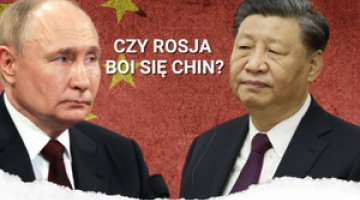Russia is strengthening its presence in Transnistria
Russian MFA special representative for the resolution of the conflict in Transnistria, Sergei Gubarev, paid a visit to Tiraspol on 6 February. His visit preceded a round of negotiations concerning the status of Transnistria to be held in Lviv on 19-20 February in the 5+2 format (Russia, Ukraine, the US, the EU and the OSCE, as well as Moldova and Transnistria).Gubarev said that, in spite of signals sent by Ukraine, which is organising the summit, Russia firmly maintained its position that talks on Transnistria's political status would be possible only when Moldova withdraws its 2005 law which grants Transnistria the status of an autonomous entity within Moldova. Russia also demands that Chisinau approve agreements which will enable inhabitants of Transnistria holding Russian and Ukrainian passports to freely travel to Moldova and which will facilitate transport across the Dniester. Faced with Chisinau's reluctance to resolve these issues, Transnistria’s president, Yevgeny Shevchuk, announced that he would not attend the 5+2 meeting.
Furthermore, Russia is once again reinforcing its symbolic and institutional presence in Transnistria. Following failed attempts to open a consulate in Tiraspol, the Russian embassy in Moldova is planning to open a representative office of the Chisinau consulate at the end of February in a building handed over by the Transnistria government. This office will in fact function as a consulate in Transnistria. Four Russian diplomats have already arrived in Moldova to work there. A group of experts has also been established in order to support Transnistria in adjusting its legislation to Russian standards. A large delegation of Russian experts and deputies attended a conference inaugurating the representative office without consulting it with Chisinau. This was quite unsettling for the Moldovan government.
Commentary
- Judging by the position taken by the Transnistrian and Russian governments, one may assume that the talks in Lviv will not lead to any important settlements. It may be presumed that one of the motives behind the Russian measures was the willingness to torpedo the summit which supposed to have been the main success under the Ukraine's leadership in the OSCE.
- Agreement in the areas of transport and freedom of movement or Moldova's consent to open a consulate in Transnistria would lead to the consolidation of Tiraspol's position against Chisinau. Putting pressure on Moldova in these issues is in line with the premises of Russia's policy which seeks for a federation of Moldova and Transnistria, composed of two equal entities. Currently Moscow seems to be hoping that, since Prime Minister Vlad Filat wishes to reinforce his position on the Moldovan political scene by improving relations with Moscow, he will be willing to make certain concessions in the case of Transnistria. At the same time the strengthening of Russia's presence there is meant to be a guarantee of its influence, irrespective of the political scenario which will be implemented in the future.
- Russia's measures taken towards Transnistria should also be seen as part of Moscow's efforts to block the possibility of closer contacts between Moldova and the EU due to the signing of the Deep and Comprehensive Free Trade Agreement (DCFTA) and to apply pressure on Moldova to join the customs union which is being established by Moscow. The intensified Russian presence in Transnistria is increasing Russian pressure on Moldova to change its geopolitical orientation.





